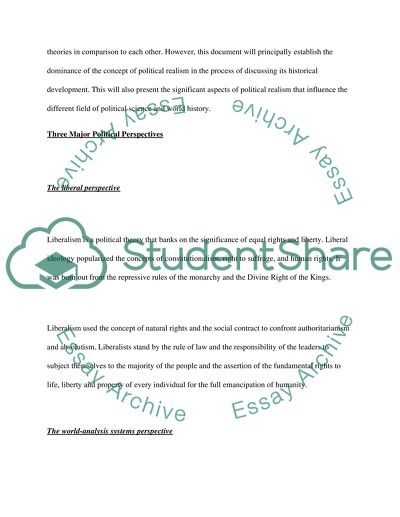Cite this document
(“Describe in detail the realist perspective of world politics, and Essay”, n.d.)
Retrieved from https://studentshare.org/history/1428969-describe-in-detail-the-realist-perspective-of
Retrieved from https://studentshare.org/history/1428969-describe-in-detail-the-realist-perspective-of
(Describe in Detail the Realist Perspective of World Politics, and Essay)
https://studentshare.org/history/1428969-describe-in-detail-the-realist-perspective-of.
https://studentshare.org/history/1428969-describe-in-detail-the-realist-perspective-of.
“Describe in Detail the Realist Perspective of World Politics, and Essay”, n.d. https://studentshare.org/history/1428969-describe-in-detail-the-realist-perspective-of.


